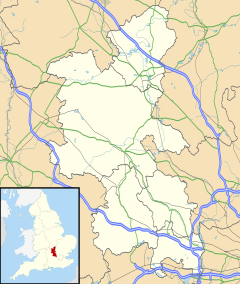Fenny Stratford
| Fenny Stratford | |
|---|---|
| Fenny Stratford shown within Buckinghamshire | |
| OS grid reference | SP882341 |
| Civil parish | |
| Unitary authority | |
| Ceremonial county | |
| Region | |
| Country | England |
| Sovereign state | United Kingdom |
| Post town | MILTON KEYNES |
| Postcode district | MK2 |
| Dialling code | 01908 |
| Police | Thames Valley |
| Fire | Buckinghamshire |
| Ambulance | South Central |
| EU Parliament | South East England |
| UK Parliament | |
Fenny Stratford is a constituent town of Milton Keynes, ceremonial county of Buckinghamshire, England and in the Civil Parish of Bletchley and Fenny Stratford. Originally an independent town, it was included in the Milton Keynes "designated area" in 1967. From 1895 it formed an urban district with Bletchley, until 1974 when it became part of the borough of Milton Keynes (since 1997 a unitary authority). It is located at the south east edge of the city and is its gateway to northbound travellers on the A5.
The town name is an Old English language word that means 'marshy ford on a Roman road'. The Roman road in this case is the Watling Street. There are traces of the Roman settlement Magiovinium on the edge of the present day occupation. (Possibly the oldest known gold coin in Britain was found here, a gold stater of the mid-second century BCE). The town was recorded in manorial rolls in 1252 as Fenni Stratford, though previously it was just known as Stratford: the prefix being added to distinguish the town from nearby Stony Stratford.
Being an ancient market town, Fenny Stratford was the location of a weekly market for many years until 1665 when the town was badly hit by the bubonic plague. As a result, the main road that ran through the town was diverted away from it, and the market died as a result. The market was never reinstated: the town was very much in ruins by the early eighteenth century, and had by this time joined with both Bletchley and Simpson, being commonly considered a hamlet of the former.
...
Wikipedia

